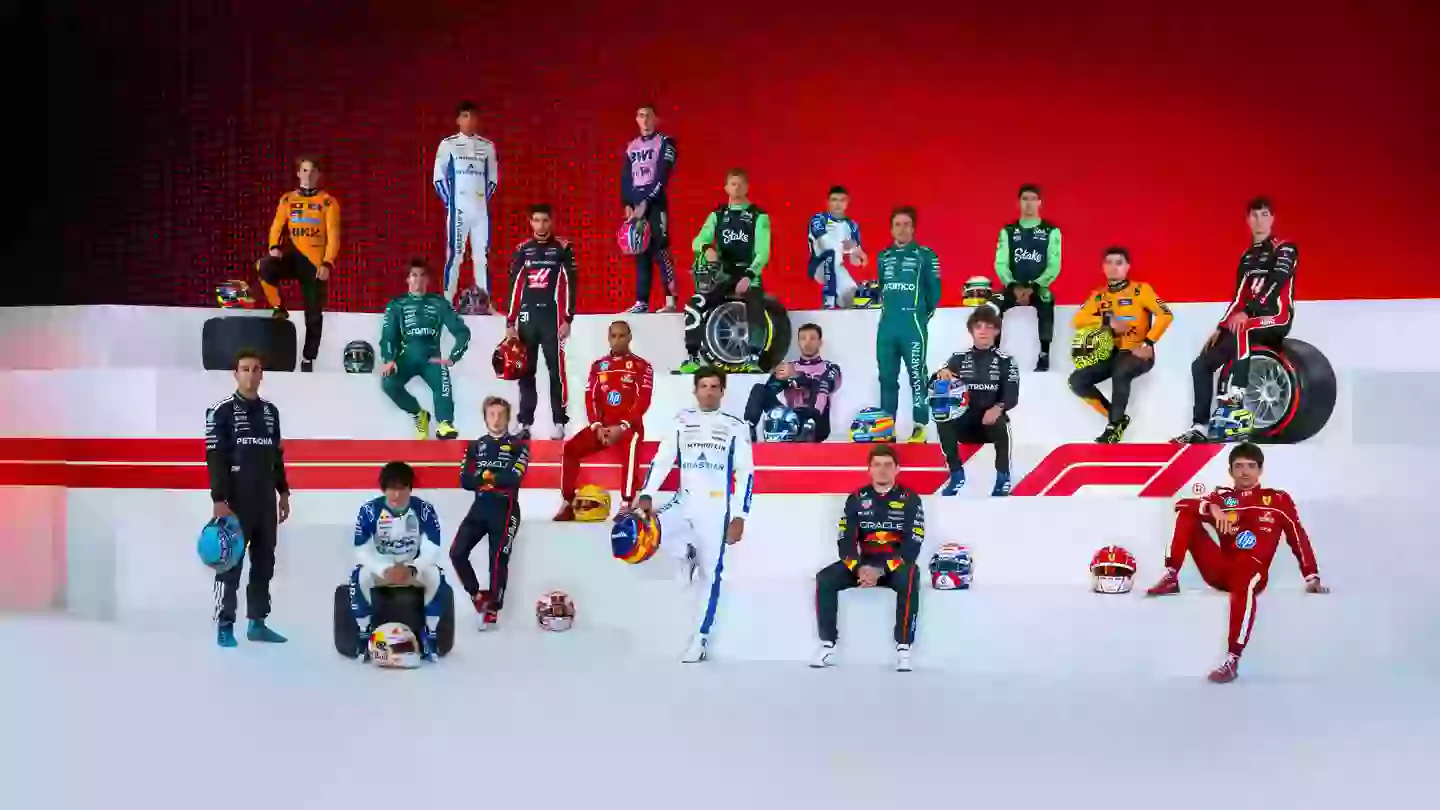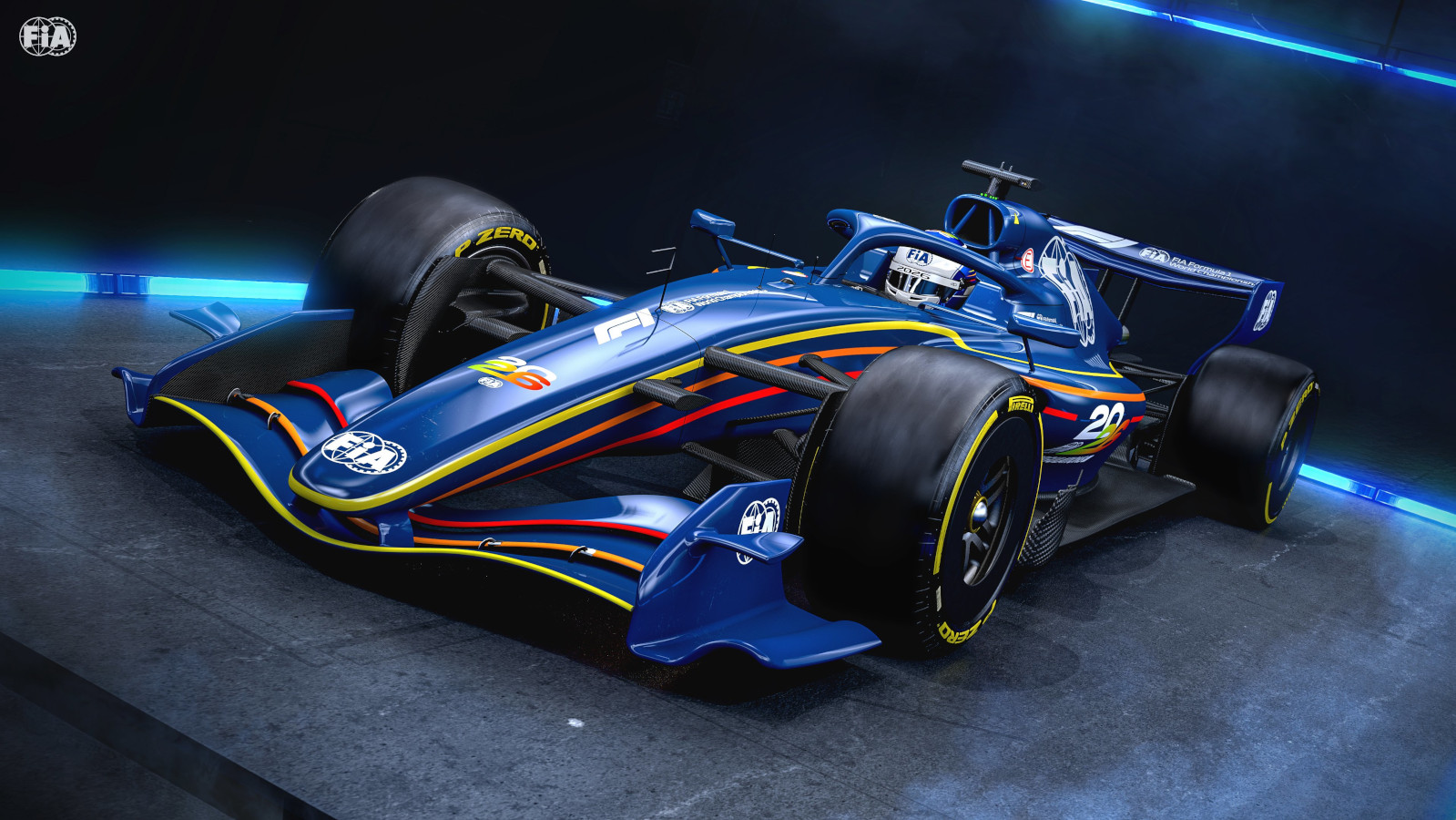F1’s 2026 Regulations: Innovation or Identity Crisis?
The Formula 1 world is buzzing — and not with excitement. The FIA’s upcoming 2026 regulations have triggered one of the sport’s most heated debates in recent memory. On paper, the changes are aimed at sustainability, electrification, and tighter racing. But in practice? Many of the sport’s top drivers warn that the new era could be slower, less spectacular, and dangerously artificial.
From Lando Norris to Charles Leclerc, Lance Stroll, and even seven-time champion Lewis Hamilton, the paddock’s verdict is far from unanimous — and mostly skeptical. With the FIA pressing ahead, the big questions are: is it too late to change course, and are we heading toward an era of F1 that fans and drivers alike will find hard to love?

The 2026 Vision: Green Speed or Green Gimmick?
The heart of the 2026 rules lies in a radical shift toward electrification. Power units will split output evenly between the internal combustion engine (ICE) and an upgraded battery system — a 50/50 balance that reflects F1’s pledge to achieve a net-zero carbon footprint by 2030.
Manufacturers like Audi have embraced this shift, seeing it as a gateway into F1 and a showcase for their electric road-car technology. In theory, this also levels the playing field — all teams start fresh under the same rules.
But there’s a trade-off: less raw horsepower from the ICE, more reliance on electric boost, and design compromises to manage battery power. For many, that’s where the excitement starts to fade.

Lando Norris: Keep It Real
McLaren’s Lando Norris has been one of the most vocal critics. While he acknowledges that some elements of the new regulations could be “good and different,” he fears they risk stripping away F1’s authenticity.
“I don’t want things to be too fake or scripted,” Norris said. “That’s not motorsport and that’s not what I like.”
His main concern? Slower cornering speeds, less dramatic lap times, and a bizarre loss of speed at the end of straights due to battery management. In simulator runs, he says, the cars simply don’t look or feel as spectacular.
“They’re going to be slower and straighter in the corners… at the end of straights, you’re decelerating,” Norris explained. “It’s not going to look as cool or as special.”
Lance Stroll: Too Much Regulation, Not Enough Racing
Aston Martin’s Lance Stroll, not usually a headline-maker for bold statements, has also taken a firm stand. After testing the 2026 concept in a simulator, he came away unimpressed.
“It’s a shame that in Formula 1 we are taking the path of electric energy and we’ve had to take all the downforce off to support the battery power,” he said. “It would just be fun to see some light, nimble, fast cars with lots of downforce… less of an energy battery championship science project and more of a Formula 1 racing championship.”
Stroll’s argument is simple: F1 is overregulating itself. Instead of letting teams chase ultimate speed, the FIA is designing an artificial balance of performance — reducing DRS, introducing “manual override mode” for overtakes, and making the cars narrower in the hope of better wheel-to-wheel racing. But he questions whether slower cars can ever deliver the thrill fans crave.
Charles Leclerc: Hopeful, But Not Convinced
Ferrari’s Charles Leclerc has also run the 2026 spec in the simulator — and wasn’t blown away.
“Let’s say it’s not the most enjoyable race car I’ve driven so far,” he admitted. While he hopes the project will improve before launch, Leclerc concedes that “it’s no secret” the cars will be less enjoyable to drive. Still, he frames the new rules as a challenge to adapt to, even if they don’t inspire him yet.
Max Verstappen: The Frankenstein Warning
Reigning champion Max Verstappen has been wary of the 2026 plans for years. He’s warned of “a weird car to drive” that doesn’t respond naturally to driver input. His former team boss even labeled the concept a “Frankenstein project.”
The concern is historical: in 2014, Mercedes dominated the hybrid era after years of preparation, leaving rivals in the dust. While Ferrari, Aston Martin, and others are working hard not to repeat that imbalance, Verstappen fears that the 2026 rules could still hand one team — perhaps Mercedes or Ferrari — a runaway advantage.
Hamilton: Embrace the Challenge, But Prepare for Surprises
Lewis Hamilton brings a different perspective. Known for thriving in times of change, the Mercedes star sees regulation shifts as an opportunity to innovate.
“There’s so much innovation and development,” he said. “The learning curve is so steep for everyone within the team… it really challenges us all to dig deep.”
Yet even Hamilton admits the new rules could “go either way.” They might produce close, thrilling racing — or lead to another era of domination, with some teams “ahead by miles.”
The Strategic Gamble
The FIA’s gamble rests on two big promises: sustainability and better racing. By reducing DRS dependency and introducing a manual override system for overtaking, they hope to reward skill over gimmicks. By making the cars narrower and more efficient, they expect to see closer battles.
But slower lap times, reduced downforce, and the awkward management of electric boost could undermine those goals. If overtakes are harder to set up, if cars lack the visceral edge of raw speed, the racing spectacle may suffer.

Winners, Losers, and the Audi Factor
On paper, the changes could reshuffle the pecking order. Mercedes and Ferrari, with deep engine-building expertise, might gain an advantage. Red Bull, despite leveraging Honda’s intellectual property, is technically a rookie power-unit manufacturer — as is Audi.
Audi’s entry is a clear win for F1’s global image and sustainability agenda. But the brand’s enthusiasm for electrification contrasts sharply with the skepticism of veteran drivers who fear the sport’s “soul” is being compromised.
A Question of Identity
At its core, the 2026 debate is about what Formula 1 should be. Should it prioritize being the fastest, most extreme motorsport on Earth, or lead the charge in sustainability and automotive relevance? Can it do both without alienating its fanbase and its drivers?
Critics point out that F1’s environmental footprint is tiny compared to global industries — and that road-car relevance shouldn’t outweigh the sport’s DNA of speed, noise, and raw performance. Supporters counter that F1 must evolve to stay politically and commercially viable in a changing world.
The Stakes for the FIA
If the new era flops — delivering dull racing or cementing a single-team dominance — the backlash could be severe. FIA president Mohammed Ben Sulayem will face intense scrutiny over how the sport ended up here. For now, teams, drivers, and fans are left in a state of cautious anticipation.
Looking Ahead
The 2026 regulations are more than just technical rules; they’re a statement about the future of Formula 1. Will they usher in a new golden age of close, sustainable racing? Or will they mark the beginning of an over-engineered, less thrilling era?
For now, the paddock remains divided. As Norris put it, “I just don’t want it to be too fake.” Whether those fears come true will depend on how effectively the FIA, teams, and manufacturers can refine the vision between now and the first lights-out in 2026.
One thing is certain: when the new cars roll out in Melbourne, the whole motorsport world will be watching — stopwatch in hand.
News
Die Welt hat sich weitergedreht: Marie Fredriksson rechnet leise ab – 5 Stars, die sie im Stich ließen.
Der Klang von Roxette war der Soundtrack einer ganzen Generation. Mit Hits wie „It Must Have Been Love“ und „The…
Conny Froboess: Die bittere Wahrheit hinter der Traumkarriere – Im Alter trägt sie eine unheilbare Wunde.
Der Name Conny Froboess ist in Deutschland untrennbar mit einem Gefühl von Leichtigkeit und sonnigen Kindertagen verbunden. Wenn ihr größter…
DER WACKELDACKEL DER REPUBLIK: WIE MERZ’ „HERBST DER REFORMEN“ IN EINER EISZEIT DER STARRE ENDETE UND UNSERE ZUKUNFT VERPFÄNDET WIRD
Einbruch in die politische Wirklichkeit: Die bittere Bilanz nach dem Versprechen des Aufbruchs Mit großen Versprechungen begann die Zeit, die…
Bommes’ Nerven liegen blank: Unerwarteter Eklat in der letzten Folge von „Gefragt – Gejagt“ schockt die Fans
Ein Augenblick, der das harmonische Ende einer Quiz-Saison sprengte. Ausgerechnet in der vorerst letzten Ausgabe der erfolgreichen ARD-Show „Gefragt –…
Herzschlag-Finale in der Scheune: Friedrich und Laura trotzen dem TV-Kitsch mit dem ehrlichsten Liebesbeweis der Staffel
Der leise Moment, der lauter spricht als jede große Inszenierung Es war der Moment, auf den Millionen von Zuschauern der…
Kai Pflaume bricht sein Schweigen: Das 30-Jahre-Geheimnis hinter Deutschlands Vorzeige-Ehe und warum seine Ilke sein wichtigstes Korrektiv ist
Die deutsche Fernsehlandschaft hat viele Gesichter, aber nur wenige sind so konstant, so sympathisch und so untrennbar mit dem Gefühl…
End of content
No more pages to load












